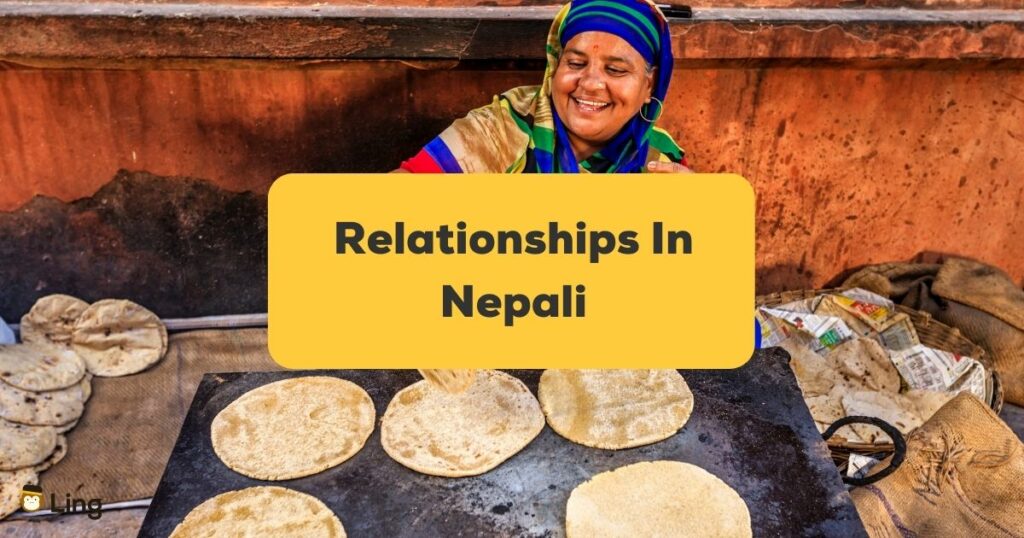In Nepal, many relationships exist even outside the family members. Of course, family is first and most important. But the doorman, housekeeper, launderer, mailman, and milkman also have a relation to the family – so they have relationship names. In this article, we’d like to dig deeper into relationships in Nepali and what they mean.
Let our title of the article not deter you! We are not referring to boyfriends and girlfriends or the other man or woman in a marriage. By “other relationship names,” we actually hint towards the Nepali culture of making literally everyone a family member.

Nepal And The Nepali Language
Nepali is similar to Hindi, but they are not completely the same. They come from similar origins, and as neighboring countries, they share a lot in their culture, food, way of life, and ways to relate to others around them.
The language is about 500 years old. The current version of the language results from settlers that came to these valleys and settled a long time ago. Nepal has some of the most breathtaking sights and is popularly known for mountain climbing, trekking, and river rafting.
Nepali Family Words
Here is the usual list of family members that can be commonly seen in Nepali homes.

Other Relationships In Nepali
In a Nepali family, those who are not part of the immediate family or nuclear and even extended family are also referred to by family names. First of all, the age of the person must be taken into consideration. If older than you, consider calling the person how you would call your elder brother or elder sister in Nepali. Here are some more interesting examples of other relationships in Nepali:
Sentences Referring To Other Relationships In Nepali

Learn Nepali With Ling
As you can see, a potential family-level relationship can be made among Nepali people at every corner and turning you take! It makes their culture and way of life even more interesting. Just remember that Nepalis are very respectful towards people older in age, even through relationships. For example, you must refer to a friend or colleague’s wife as भाभी bhabi or elder sister even if she is much younger in age. Relationships and politeness or respect pretty much go hand in hand!
If you are interested in the Nepali language, let us make a recommendation for you. We have an excellent mobile app that can take you through this language and make you an expert in a matter of days, if not two weeks maximum! Friends, meet Ling! Ling is an all-rounder, making it a great resource for quickly learning Nepali and 60+ other languages!
Complete with lessons for writing, reading, listening, and speaking, this remains one of the most downloaded apps on the market today! After all, this is much easier to use since you can download it and start sharpening your skills in just 15 minutes (or less!). The best part is that it’s affordable and hassle-free, making it an excellent option for anyone who leads a busy life. So whether you’re a student, an employee, or a retiree, you can find the Ling app as a great resource.
So what are you waiting for? We are ready to be your travel buddy and guide for an enriching experience in Nepal and other countries! Start your language learning journey and allow us at Ling to be a part of it.
















